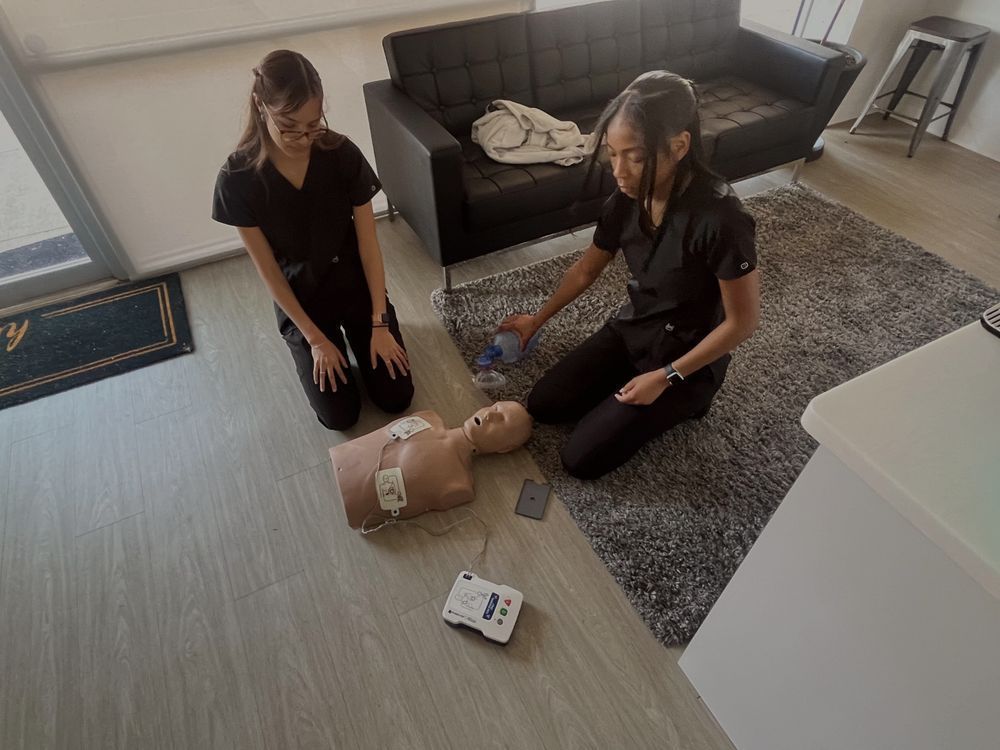What Entry-Level Medical Assistants Want in a Job
What Entry-Level Medical Assistants Want in a Job
Entry-level medical assistants (MAs) are an essential part of today’s healthcare workforce. From supporting physicians to helping patients feel at ease, their responsibilities span both clinical and administrative tasks. As more individuals complete training programs and enter the field, employers are increasingly looking for ways to attract and retain top talent—especially those just beginning their careers.
Understanding what entry-level medical assistants want in a job is key to building a supportive and sustainable healthcare environment. These workers are motivated not only by pay but also by meaningful growth opportunities, workplace culture, and the chance to make a real impact. Below, we’ll explore six top priorities medical assistants seek when evaluating job offers.
- Competitive Pay and Transparent Compensation
Like any professional entering the workforce, medical assistants want to be paid fairly for the work they do. Entry-level MAs are often starting their careers with student loans or personal responsibilities, so compensation is top-of-mind. While they may not expect top-tier salaries right away, they are looking for positions that offer pay consistent with industry standards, local cost of living, and experience level.
Transparency around compensation also plays a major role in job satisfaction. Medical assistants want to know what they can expect in terms of pay increases, shift differentials, and overtime. When employers are clear about how compensation grows with experience and performance, it builds trust and helps entry-level MAs see a future in the organization.
- On-the-Job Training and Mentorship
Medical assistants who are new to the field benefit greatly from strong onboarding processes, hands-on training, and access to experienced mentors. While many have completed formal training and externships, the transition to full-time clinical or administrative duties can be overwhelming without support.
Mentorship and structured training programs allow entry-level MAs to gain confidence and competence quickly. When they feel supported by colleagues, supervisors, and educators, they’re more likely to ask questions, avoid burnout, and deliver better patient care. A workplace culture that promotes learning and development not only helps new hires adjust—it also improves retention and workplace morale.
- Respect and Professional Recognition
Medical assistants are vital contributors to the healthcare team, yet they are sometimes overlooked or undervalued. Entry-level MAs want to feel that their work is respected and that they’re seen as professionals in their own right. This includes being treated with courtesy by patients and colleagues, being involved in team meetings or discussions, and being recognized for their contributions.
A culture of respect also includes clearly defined roles and boundaries. Entry-level MAs are more likely to thrive when they’re not asked to perform tasks beyond their scope or outside of their training. Respectful environments provide clarity, acknowledge achievements, and create a sense of pride in the work medical assistants do.
- Work-Life Balance and Predictable Schedules
Many entry-level MAs choose this career path because of the promise of stable hours and a good work-life balance. While healthcare settings can be unpredictable, having some degree of consistency in scheduling is crucial. Entry-level MAs appreciate knowing when they’ll work, how often they’ll be on call (if at all), and how scheduling changes are communicated.
Work-life balance also includes reasonable workloads and support when things get busy. Burnout can hit fast in healthcare, especially for new professionals still adjusting to the pace. Organizations that prioritize wellness, offer paid time off, and avoid excessive overtime can retain their entry-level staff longer and keep teams energized.
- Opportunities for Career Growth
Even at the start of their journey, medical assistants are thinking about what’s next. Whether it’s specializing in a certain area of medicine, becoming a lead MA, or eventually pursuing nursing or other healthcare careers, entry-level professionals want to know there’s room to grow.
Employers who invest in development—through continuing education support, tuition reimbursement, cross-training, or leadership tracks—stand out. These offerings send a message that the organization values long-term commitment and that growth is part of the plan. When entry-level MAs see a pathway forward, they’re more likely to stay and develop with the team.
- A Positive and Inclusive Workplace Culture
A supportive work environment can make all the difference for someone starting out. Entry-level MAs want to feel welcomed, included, and safe to be themselves. Whether it’s how management communicates or how coworkers support each other, culture plays a big role in how satisfied and productive a medical assistant will be on the job.
Inclusive environments celebrate diversity, offer flexibility, and promote open communication. For MAs just beginning their careers, knowing that their voice matters and that they are working in a team-oriented setting creates a sense of belonging. This in turn helps reduce turnover and increases job satisfaction across the board.
Supporting the Future of Healthcare
Entry-level medical assistants bring energy, empathy, and enthusiasm into the healthcare system. When employers understand and meet their needs—fair compensation, mentorship, respect, balance, growth opportunities, and positive culture—these professionals are more likely to stay, thrive, and deliver excellent patient care.
If you’re thinking about becoming a medical assistant and want to be well-prepared for the field, consider starting with the right training. Pulse Medical Assistant School offers a flexible, online-first 16-week program designed to help students build confidence and real-world skills. With intensive, in-person labs, Pulse ensures that graduates are ready to help real patients receive real care—starting on day one.
Ready to launch your career as a medical assistant? Learn more about Pulse Medical Assistant School today.
You're only a few months from the medical assistant career you deserve.
